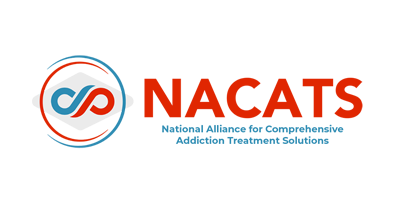
Your son has always been in the “failure to launch” phase. He is 28 and living in your basement. You know you are partially to blame, it’s easy to mother-hen him and help when he asks. He had been distant since the divorce over five years ago, and he stopped doing the things he needed to do. This was your way of keeping him close.
He always had friends over, and when you would pick up the basement the next day, you always saw plastic cups with residual purple syrup. You wondered what this was and when you ask him about it, he laughs and says “purple drank.” You google it and find out it is actually codeine, and all the results bring up words like “codeine addiction,” “codeine dependence,” and “get help for codeine use disorder today.” This scares you – it sounds like this drink could be really dangerous. But he doesn’t show any signs of codeine addiction, maybe he is okay?
Between 2017-2019, 193,000 Tennessee adults over the age of 12 reported prescription pain reliever misuse. This class includes prescriptions such as codeine in all its forms. ReVIDA® Recovery understands that no one takes medication from their doctor hoping to become dependent. Our program offers flexible, outpatient therapies that can adapt to many different schedules. With locations throughout Tennessee and Virginia, we are making access to treatment easier and more convenient. In today’s blog, we will dive into the signs of codeine addiction and what to recognize in a loved one.
Table of Contents
Understanding Codeine Addiction
Codeine is a widely used opioid for pain management and severe cough. The way that opioids work is by binding the opioid receptors in the brain. These receptors then block pain signals between the brain and body. This pain relief can benefit those managing a chronic condition such as cancer or fibromyalgia, and also in those recovering from major surgery.
Codeine is an FDA-approved medication that is regulated by doctors, pharmacists, and other medical professionals. However, dependence can still occur even when taken as prescribed. As the body becomes used to having codeine in the system, tolerance will build. This means it will require more of the medication to achieve the same results. Medical professionals work with the person to avoid developing too high of a tolerance, but those who use codeine illicitly may take more powerful or frequent doses.

Signs Someone Is Living With a Codeine Use Disorder
There are many different signs someone may be living with a codeine use disorder. One of the signs is seeing paraphernalia around. These can include pill bottles without a label, unlabeled bottles of liquid medication (cold medicine), and possibly cups with purple liquid residue. Also, opioids such as codeine produce specific effects that can be noticed physically, psychologically, and behaviorally.
Physical Signs of Codeine Use
One of the first signs of codeine use is a rush of euphoria. The initial rush is followed by relaxation and drowsiness. Increased itchiness can be seen with codeine use. Digestive issues are common such as nausea, vomiting, and constipation. Breathing rates can slow, causing sleepiness and nodding in and out of consciousness. When too much codeine is taken at once, the body can become overwhelmed and breathing can stop altogether. This is an overdose and is a life-threatening condition.
Psychological Signs of Codeine Use
Psychological signs of codeine use can vary from person to person. Common signs include mood swings, agitation, and confusion. In some cases, hallucinations can occur. Long-term codeine use has been shown to increase depression or cause depression to develop. However, between uses of codeine, the person may feel more restless, and anxious to get their next dose.
Behavioral Signs of Codeine Use
Codeine may change behaviors in yourself or your loved one that reflect a need for the substance. Codeine is used to treat pain, and the person may say they are in pain and need the medication even if they are no longer in pain. They may change friend groups or hide from family to keep their use private. If they already have a codeine prescription, the person may be buying more from illicit sources. Relationship strain and job performance will deteriorate as codeine use becomes the most important thing in their life. Eventually, they will isolate themselves from everyone around them, causing depression to increase.
Health Risks of Codeine Use Disorder
Over time, codeine use disorder can cause a plethora of negative health effects. Seizures, digestive system complications, liver and kidney damage, and delirium can occur. The liver is responsible for processing codeine, while the kidneys flush it out of the body through urine. When these systems become damaged, the body is not able to filter out toxins as efficiently. As toxins build up, they can cause damage to other organs, creating more health risks.
Codeine also takes a toll on mental health, increasing depression and anxiety. If left untreated, these conditions can lead to thoughts of self-harm or suicide. If you ever experience these thoughts, seek medical attention immediately.
As we discussed above, a codeine overdose is a serious, life-threatening scenario. When opioids build up in the body, the system can’t keep up to process them. As the body becomes overwhelmed by codeine, the central nervous system slows dramatically. Breathing stops, causing hypoxia, a condition in which not enough oxygen is being carried through the blood to vital organs. This causes organ damage and failure, which can be fatal. Always seek medical attention if an overdose is suspected. Narcan® (naloxone) can be administered to reverse the effects of a codeine overdose. If available, use Narcan® (naloxone) even if you do not know what substances were taken. It does not cause harm if opioids are not present, and it is always better to be safe.

Risk Factors for Codeine Use Disorder
Not everyone who takes codeine will develop a codeine use disorder, but there are risk factors that increase the chances. These include:
- Experiencing trauma at some point in life
- Having a family member with a substance use disorder
- Previously having an opioid use disorder
- Witnessing or experiencing abuse – physical, mental, or emotional
- Being around others who use codeine
- Prone to engaging in reckless behaviors
These risk factors do not guarantee the person will develop a codeine use disorder. Doctors will give assessments and use their discretion if they feel codeine should be prescribed. If you have concerns about taking codeine, ask your doctor for alternative options.
What Is Withdrawal and Why Does Codeine Cause It?
Withdrawal is a condition in which a substance the body has become dependent on is suddenly taken away. This causes uncomfortable and painful symptoms as a way for the body to signal a need for the substance. Codeine is no different, and withdrawal symptoms can appear in as little as 8-10 hours after the last dose. Withdrawal symptoms include:
- Headaches
- Anxiety
- Irritability or anger
- Stomach cramps
- Shakiness
- Muscle cramps
- Runny nose
Symptoms typically last a few days, but for some, they may last longer. The best way to ease withdrawal symptoms is to go to a trusted medical detox. Professionals will manage your symptoms in a safe environment allowing your body to make the transition to being codeine-free.
Get Help for Opioid Use Disorders in Tennessee
Experiencing a condition or injury is tough enough, but developing a dependence on the medication to treat it can really affect your mental health. However, there is a light at the end of the tunnel with codeine addiction treatment. With individual therapy along with group therapy surrounded by peers, you will arm yourself with the tools needed to begin your journey to recovery. Medication-assisted treatment may be a part of your path and has been a huge game-changer in treating codeine use disorder. You have the power to make the change, all it takes is the first step.
If you or someone you love is managing a codeine use disorder, look no further than ReVIDA® Recovery. Our team of dedicated professionals is ready to help, including medical professionals who oversee your medication-assisted treatment. We are proud to offer Suboxone as a part of our program as we have seen firsthand the difference it has made for those in recovery. Call us today at 423-631-0432 to schedule an appointment.
Reclaim your life.










